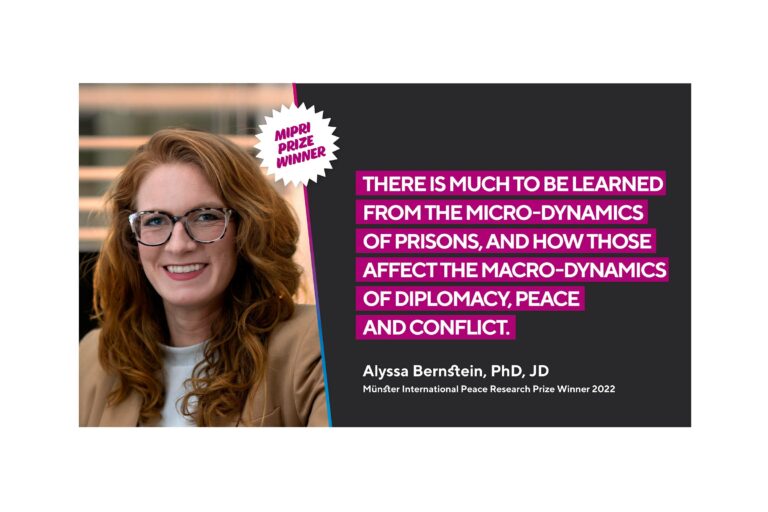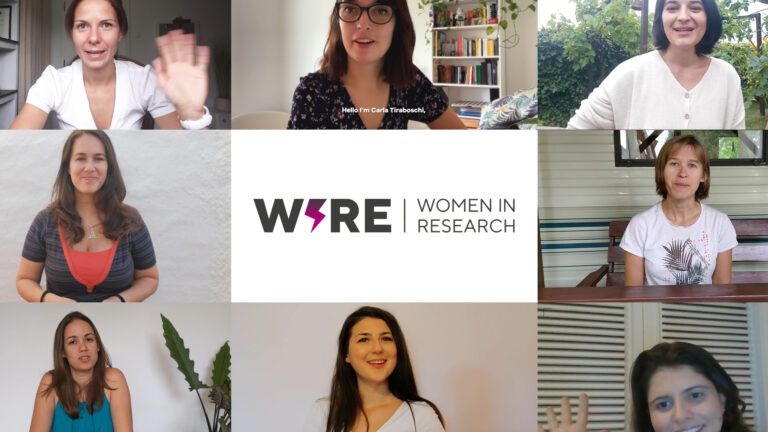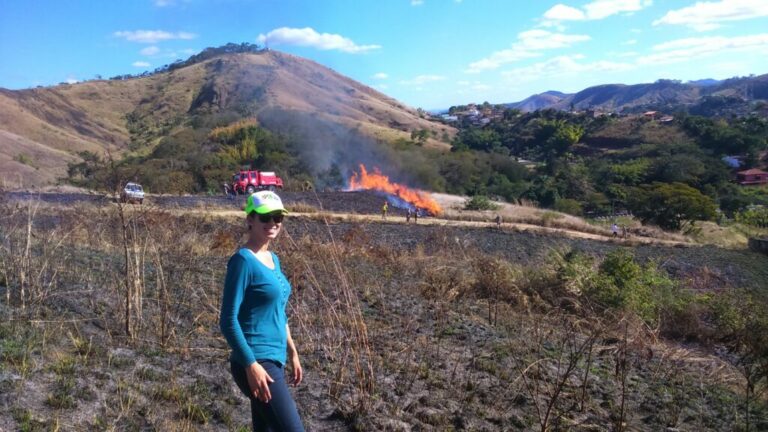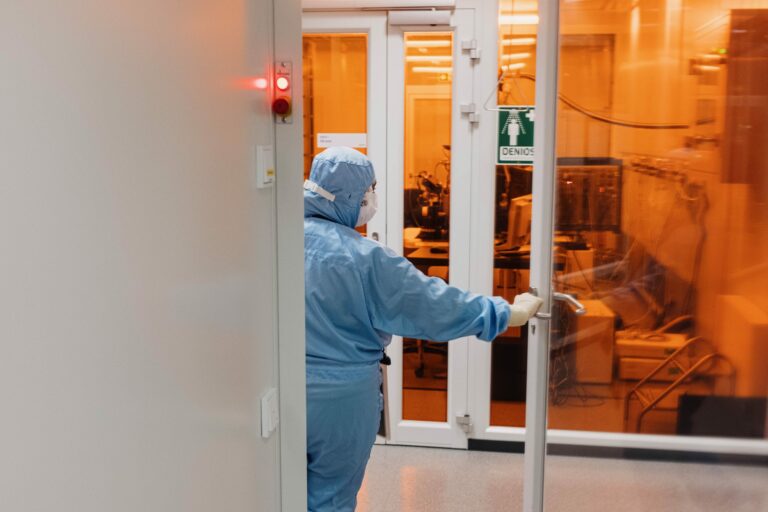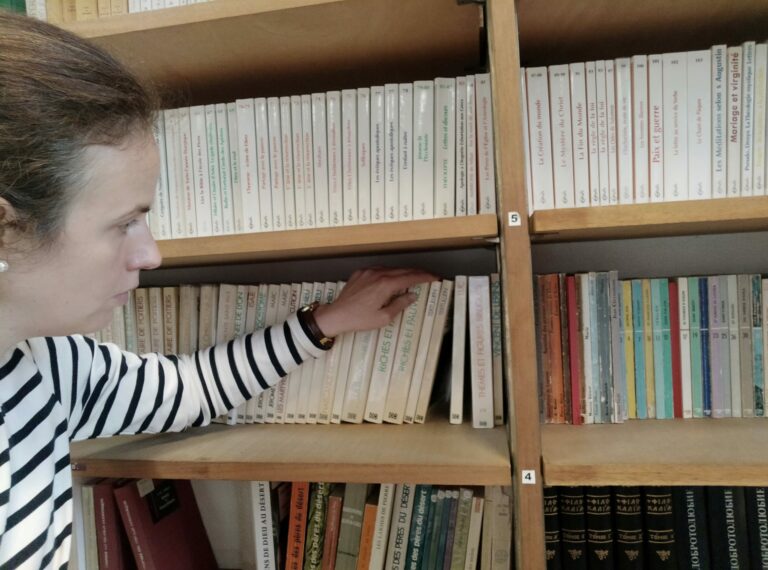
An Interview With Dr. Giulia Marotta: Love, Compassion, and Historiography
In the series “33 questions” we introduce, in no particular order, our WiRe Fellows who are currently working on a research project here at the University of Münster. Why 33? Well, if we think of the rush hour of life, it is kind of the age that lies in its middle. And we also like the number😉.
In today’s episode we are speaking with Dr. Giulia Marotta, church historian and passionate researcher of the role of Catholic women in historiography.
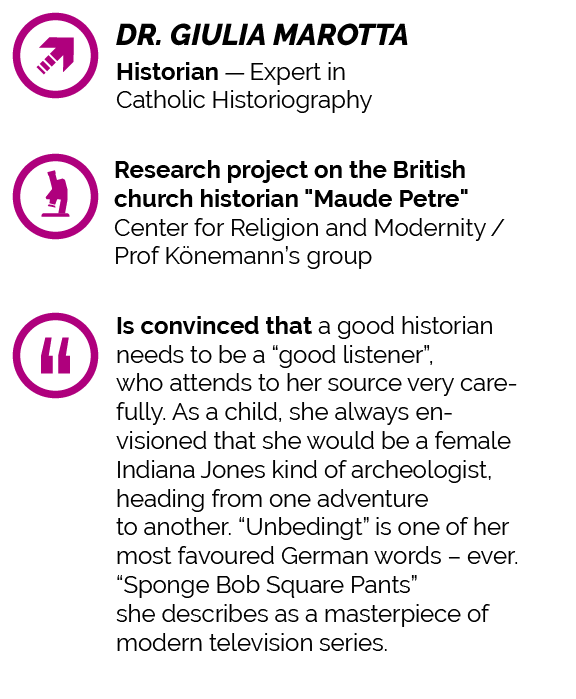
1. What motivated you to work in the field of church history?
I am Catholic, and I wanted to study something that I cared about, so that I would not lose interest as time went by. And I didn’t.
2. Describe your daily work in three words.
Read, think, write.
3. Describe your research topic in three words.
Catholicism, modernity, historiography.
4. A good historian needs to be…
A good listener, able to listen to his/her sources…
5. What is the best experience you have had as a researcher?
When someone told me that my research inspired him. Yeah, it really happened 😉
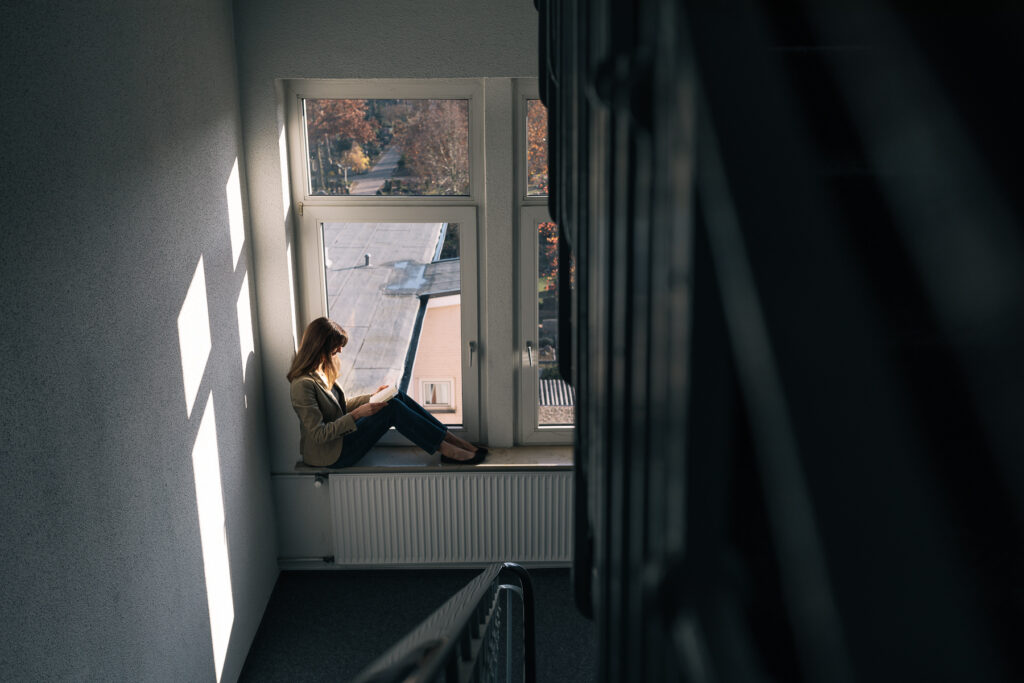

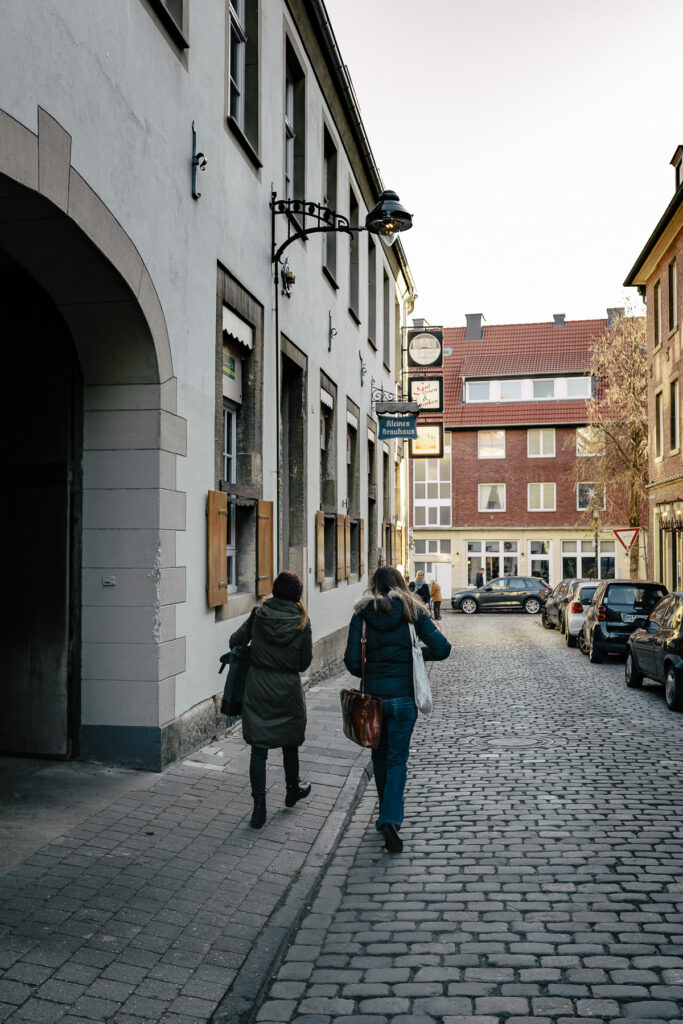
6. What was your biggest research disaster?
Crazy, crazy overbooking. Like 5 conference papers and 2 articles to write from scratch within 6 months.
7. Which (historical) important scientist would you like to have dinner with? What would you ask?
Wilhelm von Humboldt. I would ask his advice on how to answer question 19 of this interview!
8. If time and money were no object: Which research project would you like to do?
Exactly the one that I’m doing right now.
9. What is your favorite research discipline other than your own?
Maybe astronomy, but from time to time I change my mind on that.
10. What do you consider the greatest achievement in the history of science / your field?
Putting into question teleological (goal-driven) conceptions of the historical process.
11. Which experience in the world of science disappointed you most?
I can’t identify one specific negative experience, but I can say that I am disappointed whenever I see scientists building walls (disciplinary or hierarchical walls).
13. What was the funniest moment you had in science?
When I am worried about having a job interview or giving a lecture I think that in the worst case scenario, that is if I really don’t know what to say, I can always start dancing and singing like in a musical… fortunately so far this has only happened in my mind, but the day it becomes a real experience it will be my funniest moment 😉
14. How did you survive your PhD time?
I did not! At the end of it, I was completely KO. Seriously, I think I survived being extremely focused on the final result. I repeated to myself that at that particular moment I had to make big sacrifices to obtain a specific result.
15. What direct or indirect relevance does your research have for society?
I don’t think that historical research should provide direct answers about / for society. But indirectly, history can have a greater impact than any other discipline. A critical reflection on the human condition across the centuries can save lives. And, if historical research is done well, one should not be able to see a direct connection between it and the social benefits that come from it.
Some of the worst ideas that were ever developed (e.g. racism) started from a certain vision of man and his ‘destiny’ in history. The indirect, but crucial, social relevance of historical scholarship is to cultivate a multiplicity of visions and voices, so that no vision or voice can exist that is not challenged by another.
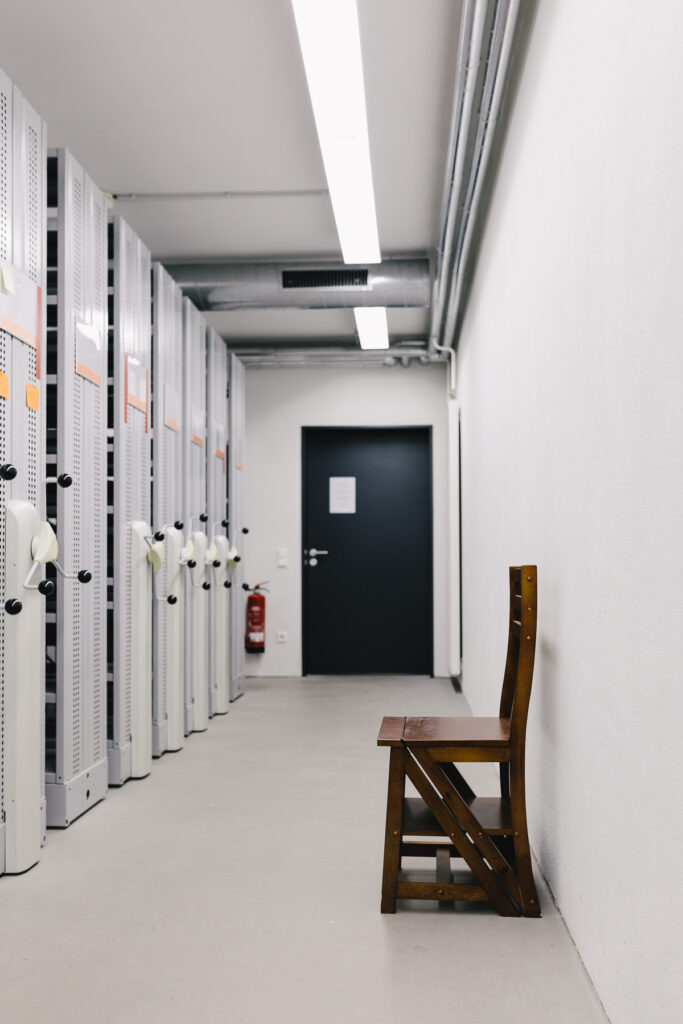
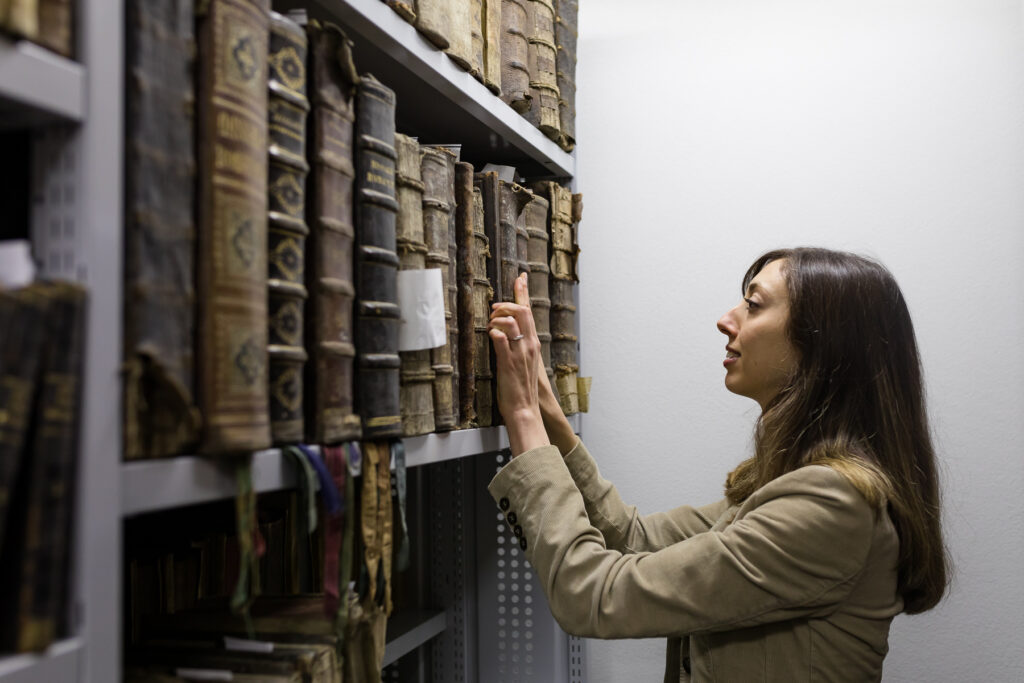
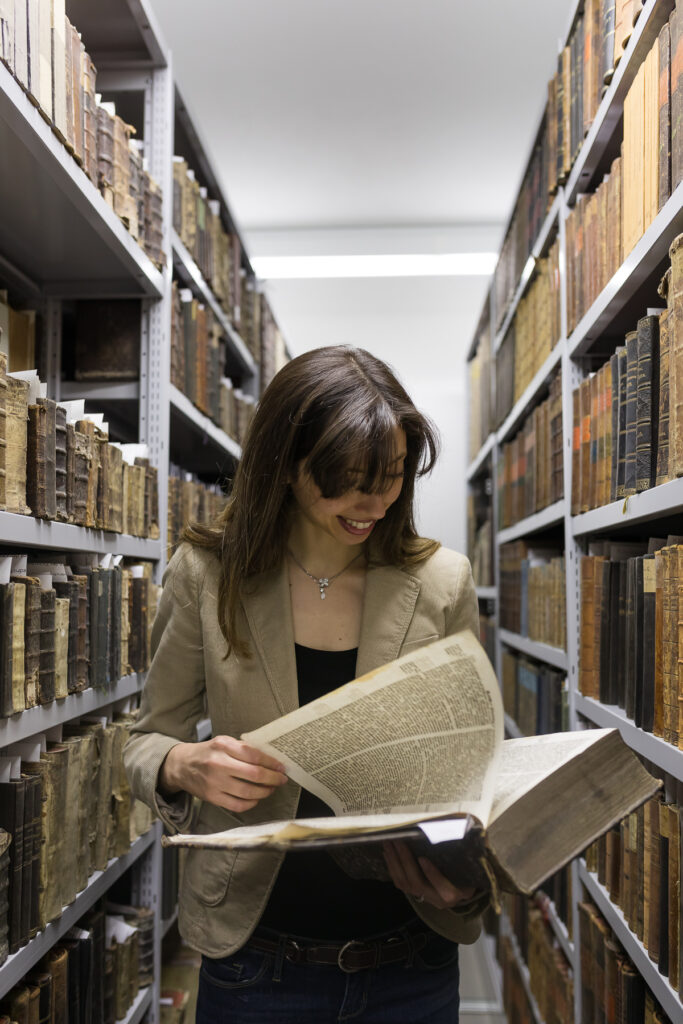
16. How did you imagine the life of a researcher when you were a high school student?
I imagined it as a very adventurous, exciting, and sometimes dangerous life, especially since I wanted to be an Indiana Jones kind of archeologist 😉 See question 26…
17. Is it actually different? In what way?
It is exactly as adventurous, exciting and dangerous as I imagined, although not in the style of Indiana Jones. Adventure and ‘danger’ mean exploring new topics and the possible, yet still unknown connections between them, challenging myself with a particular project or with the process of getting integrated in different cultures and environments. Whenever I am under stress because of my work, I say to myself, “You wanted an exciting and adventurous life…no predictable routines…challenges bigger than yourself…etc…Well, now you have it!”.
18. What do you like most about the “lifestyle” of a scientist? And what least of it?
I love that my work doesn’t have to be done at a specific time of the day. I am much more productive when my schedule is flexible. But I don’t like the instability given by the difficulties in securing long-term positions.
19. Do you think your career would have evolved differently if you were a man?
Certainly differently. But who knows whether it would have been better?
20. If you were the research minister of Germany, what would you do to improve the situation of women in science?
More campaigns to promote science at school and encourage young women to do science and research from the beginning of their studies / careers. And more funding opportunities based exclusively on the excellence of scientists and research projects.
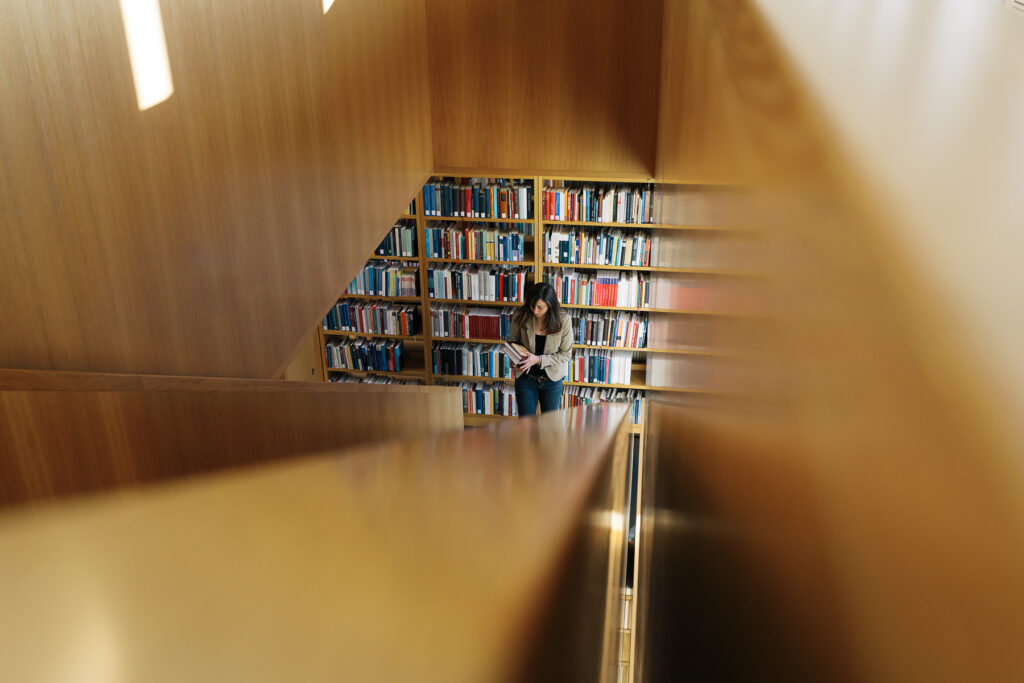
21. What is the biggest challenge for you when it comes to balancing family and career?
The fact of having to move from one city / country to another so often.
22. How often do you as a friend / partner / mother / daughter feel guilty when you have to meet a deadline again?
Honestly, I’ve never felt guilty about that. Maybe because when it was really important to be there for someone I really tried to be there anyway. And then if necessary, I worked the whole night to meet the deadline.
23. How did you imagine your future as a child? What profession did you want to pursue?
My very first wish as a child was to be a veterinarian. I loved cats and dogs, and still do!
24. What is your favorite German word?
Unbedingt – it’s easy and straight to the point.
25. What makes you most happy about the world?
Love and compassion, the simple fact that human beings are capable of them.
26. What or who inspired you to become a historian?
My grandfather for the thirst for knowledge and the sense of marvel about reality; and Indiana Jones for the passion for adventure and discovery. Not kidding!
27. Which of your traits bothers you the most in your daily work?
I’m slow to start in the morning, and I end up doing much work in the evening.
28. What worries you most about the world?
I don’t know if that’s what worries me most, but to remain on topic with science, something that worries me is the decreasing investments in humanities, especially in fields or projects that don’t have a direct and measurable impact. It seems to me that this tendency will make human beings more and more capable of doing many things, but less and less capable of thinking, which ultimately corresponds to becoming less human and more machine-like.
29. Your favourite TV series?
Seinfeld and SpongeBob SquarePants, both masterpieces!
30. Which hobby have you given up for a life in academia?
Professional dance. I have kept it as a hobby, but dropped it as a career option.
31. If you could travel in time: in which epoch and at which discovery or event would you have liked to have been there?
I would have liked to participate in the Second Vatican Council debates.
32. What is your favorite place in Münster?
No doubts on this one: the Aasee at sunset!
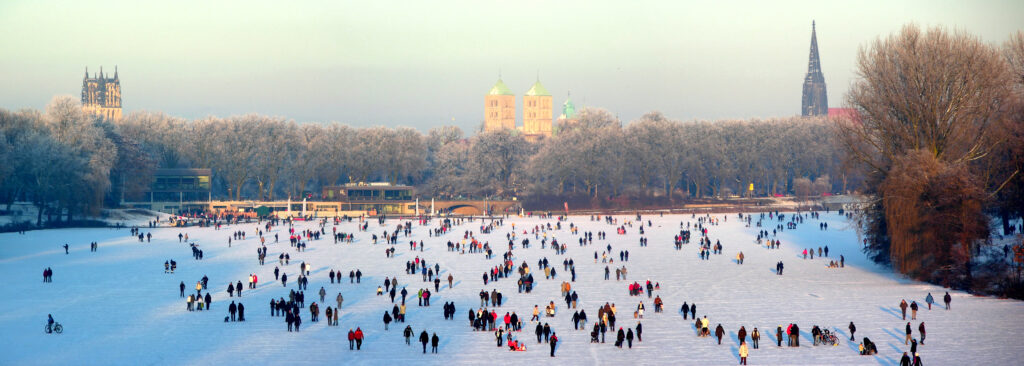
33. What surprised you most about the University of Münster?
The richness of the academic life (events and outreach activities) and the excellent (in my experience so far unparalleled) human and professional qualities of the support staff.
Learn more about how Giulia perceives layers of time in church history and how she portrays conceptual history or about her views on the topic of concepts as indicators and factors.



